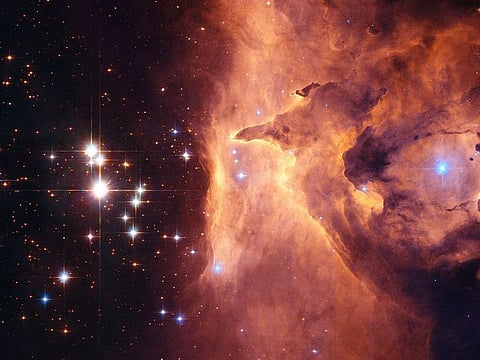Want to listen to space noise? NASA wants to hear from you
The goal is to assist scientists in identifying important features within the cacophony

Note to citizen scientists: NASA wants your help listening in on the universe - specifically, on the sounds of low-frequency waves generated by solar particles colliding with "Earth's magnetic environment."
The goal is for volunteers to assist the space agency's scientists in identifying important features within the cacophony.
Heliophysics Audified: Resonances in Plasmas (HARP) is now open to citizen scientists. HARP uses data from five NASA satellites that launched in 2007 to help study auroras, which occur when solar particles run into Earth's bubblelike magnetic field, or magnetosphere.
The name HARP riffs off what happens when solar particles collide with the magnetosphere - "the region of space surrounding Earth where the dominant magnetic field is the magnetic field of Earth," according to NASA. That region shields Earth's surface from many types of solar radiation as the sun constantly streams and blows particles toward the planet. When the solar wind and plasma from coronal ejections strike Earth's magnetic field lines, our invisible shield vibrates like the strings of a harp.
The waves those interactions produce aren't audible to the human ear; they are produced at too low a frequency for that. But the HARP team has sped them up so users can hear them - and it's inviting citizen scientists to listen and identify interesting features within the cosmic soundscape. The hope is that volunteers can help trawl through the massive amount of data while sussing out sounds that reveal more about the vibrations. Researchers will use their increased understanding of those interactions to help humans better prepare for future space weather events.
Think listening to years' worth of wave patterns is a job for artificial intelligence? Think again. In a news release, HARP team member Martin Archer of Imperial College London says humans are often better at listening than machines.
"The human sense of hearing is an amazing tool," Archer says. "We're essentially trained from birth to recognize patterns and pick out different sound sources. We can innately do some pretty crazy analysis that outperforms even some of our most advanced computer algorithms."
If you'd like to hear the sounds of solar wind and more, and to contribute to the project, visit Listen.spacescience.org.
Sign up for the Daily Briefing
Get the latest news and updates straight to your inbox



